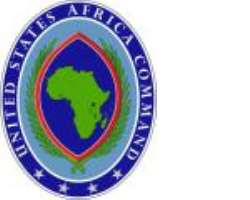SOUTH SUDAN – THREAT OF CHOLERA GROWS

GENEVA, Switzerland, July 31, 2014/African Press Organization (APO)/ -- Thousands of displaced South Sudanese living in congested camps with poor hygiene and sanitation are at high risk of contracting cholera. Since the beginning of July this year, Médecins Sans Frontières/Doctors Without Borders (MSF) teams in Upper Nile State have treated over 904 patients for cholera in two cholera treatment centres in Malakal and Wau Shilluk.
Only three weeks into the MSF intervention, and already 19 people have succumbed to cholera despite our teams' best efforts. This situation is of grave concern and demands a rapid response to contain the spread. Since April 2014 a total number of 4,765 cases of cholera have been reported in South Sudan while a total of 109 people have died from the disease.
“Cholera is a treatable disease that can be fatal if not diagnosed and treated promptly. It causes severe dehydration that can lead to death in a matter of hours,” says Llanos Ortiz, MSF Medical Emergency Manager for South Sudan.
The vulnerability of people in these areas has been exacerbated by the conflict which broke out in December last year, and has forced people to seek refuge in crowded camps for internally displaced persons (IDPs) and protection of civilians (PoC) camps. The poor living conditions in these camps favour the spread of the disease.
The lack of clean and safe drinking water is a common problem in the area. In Wau Shilluk, an area with an estimated population of 50, 000 people, IDPs have been forced to use unprotected surface water and most people undertake open defecation given the extremely low number of latrines.
The ongoing heavy rains wash the faeces into drinking water sources, thus completing the oral-faecal transmission cycle which allows communicable diseases like cholera to spread. Aid agencies in the area are working to ensure that more latrines are constructed and sanitation standards maintained.
The prevalent food insecurity situation in Upper Nile and resultant malnutrition makes the population even more susceptible to infectious diseases such as cholera as their immune systems are weakened. To date, MSF teams have admitted over 3, 195 people, mostly children to its therapeutic feeding programs in Malakal, Wau Shilluk, Kodok and Lul in Upper Nile State. The ongoing rainy season makes it impossible for the population to plough their fields and means that malaria and other waterborne diseases are a real risk.
Since conflict broke out in South Sudan on 15 December 2013, different areas of Upper Nile including Malakal, the state capital, have faced violent attacks. Civilians are paying the price of these attacks and ongoing violence. Continual insecurity in the state is prevents people from seeking medical help in good time because they live in fear. It is imperative therefore that all parties involved in the conflict ensure that security is restored and people feel safe to access healthcare.
The surge of cholera cases and the need to prevent the spread has prompted MSF to mobilise its teams from different parts of South Sudan in response to the outbreak in Upper Nile State.
MSF has set up cholera treatment centres in different parts of South Sudan, including Torit and Juba. The organisation is also supporting the Juba teaching hospital with water and sanitation activities.
Together with community health workers affiliated to the Ministry of Health and other organisations present in Upper Nile, MSF is creating awareness on the causes, spread and prevention of the disease.
